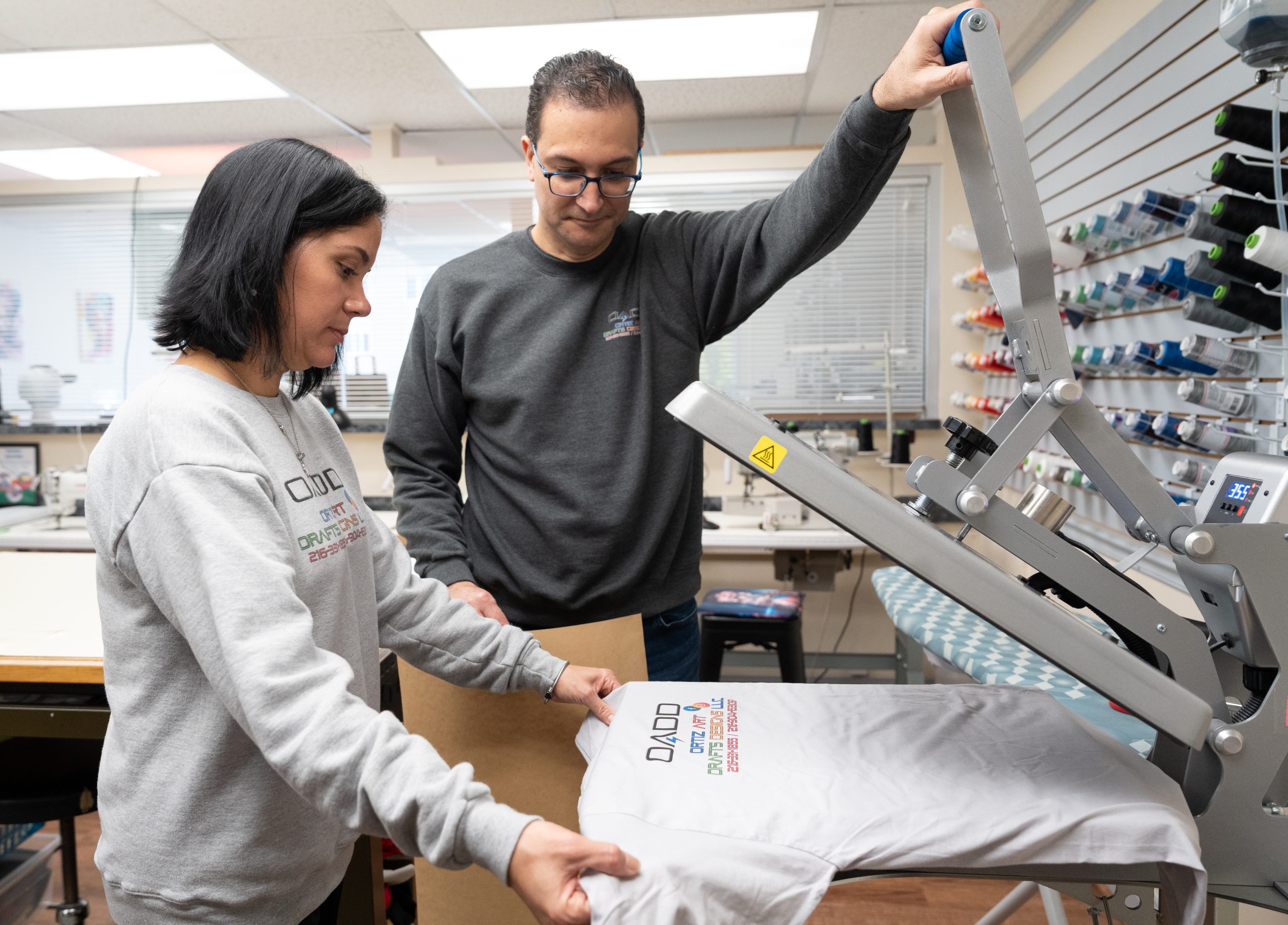Ace Taxi and Bamba Tea relied on funding and expertise from Cuyahoga County’s small business program to forge promising new paths as economic fallout from the pandemic hovered.
Business for Ace Taxi slowed to a crawl during the early days of the pandemic, which motivated management to re-envision how it would deliver transportation services. This led to Ace Taxi eventually starting RideCLE, a local rideshare service allowing people to order a cab via an app.
The business on East 55th Street also developed a new niche transporting people in wheelchairs. The county’s help included a $50,000 grant and connecting Ace Taxi with a key regional agency that provided additional funding, said General Manager Tim Lewis.
The county came through at the right time. We were still in COVID, and I needed funding that I didn’t have to repay. If we hadn’t gotten the grant, we would have missed the opportunity to go national.
Angela Sharpley, owner of Bamba Tea and Pipe’N Hot Grill
Angela Sharpley opened Pipe’N Hot Grill in Glenville with her daughter, Stésià Swain, in early 2020. When the pandemic hit several weeks later, she increased her focus on Bamba Tea, a brand she created. Sharpley used a $10,000 grant from the county for product development, which she said helped position the startup to be taken seriously by other funders and retailers. The tea is sold locally, including at Meijer Fairfax Market, where Sharpley said it should be back in stock in the next several weeks. She said national sales are in the works.
“The county came through at the right time,” Sharpley said. “We were still in COVID, and I needed funding that I didn’t have to repay. If we hadn’t gotten the grant, we would have missed the opportunity to go national.”
The cases of Ace Taxi and Bamba Tea show how the county has been able to meet the needs of an array of small businesses. While Bamba Tea has only been around a few years, Ace Taxi began nearly three decades ago. The county’s Office of Small Business, which opened in May, is designed to be a central location where entrepreneurs can come for help. For more about the program, see: Cuyahoga County opens new office to help entrepreneurs.
“We simply want to make it easier for small businesses to access the vast ecosystem of small business support, services and organizations and also to strengthen their networks and their social capital,” said Vaughn Johnson, the county’s deputy director for economic development, who is in charge of the office.

Bamba Tea inventor says ‘it calms the effects of a hangover’
Sharpley was so excited when she landed a space at GlenVillage, the mixed-used development on East 105th Street, through a competitive process for small businesses. The retail spaces serve as business incubators providing “a physical location to aspiring entrepreneurs to test their business ideas and build their entrepreneurial acumen.”
This remains the home of Pipe’N Hot Grill and Bamba Tea, which takes its name from a form of Afro-Puerto Rican folk music.
“It’s called that because it makes you want to dance!” Sharpley enthusiastically said of her tea.
The Bamba brand includes a bottled tea and a cocktail mixer that each come in several varieties. Sharpley said she uses natural flavors, such as grapefruit, ginger, pineapple and mint. While she markets the tea as a beverage, she claims that “it calms the effects of a hangover,” including lessening the severity of headaches and stomachaches.
“It is not medicinal,” Sharpley said. “It’s all natural.”
She said the tea and restaurant were off to a good start. Then in March 2020, the state declared a COVID shutdown. When things began reopening, Sharpley said road construction in front of GlenVillage made things even more problematic.
“That was our cue,” she said. “We said, ‘OK, we’re going to take this tea to the stores.’ That is where our journey began.”
Sales were going well for Sharpley and her daughter, but they wanted to take the brand to the next level. This included developing additional flavors and increasing inventory. They needed more money to make this happen.
“The truth is that minority businesses often have trouble getting funding through traditional banks,” said Sharpley.
She wound up not needing a bank loan. The small business grant from the county came in. The county was able to link Sharpley with other funders, including the City of Cleveland, which also gave the business a grant. Other good things started happening. This included Sharpley and her daughter winning money and exposure through a pitch competition. Combined, the goal of selling the brand nationally was better taking shape.
“Bamba Tea was selected to launch nationally by an organization that works with minority brands,” Sharpley said.

RideCLE, the local rideshare app, doesn’t charge more during peak hours
Lewis, the Ace Taxi general manager, remembers the small business being in “survival mode” during the early days of the pandemic. He also remembers the “What now?” feeling when the shutdown ended and the demand for cabs gradually started returning.
Many in transportation knew that the business would look different than it had before the pandemic. More remote workers potentially meant fewer customers. What goods and services would people cut back on because persistent inflation had left them with less to spend? Then there was always the issue of competition from national rideshare apps such as Uber.
“We had to get some momentum going back into our business,” he said about emerging from the shutdown.

Working with the county, the small business came up with two paths to pursue.
One was using the grant to create the RideCLE app, which took time to develop and launched several months ago. It offers a local version of the national rideshare apps. Lewis believes a locally controlled rideshare service has advantages. This ranges from Ace Taxi’s ability to screen drivers to its capability to quickly respond to local preferences. For example, Lewis said the app does not charge more to travel during peak times. Most national rideshare apps have surge pricing for in-demand times.
“On days where there’s a concert or inclement weather, and people need to get out, we’re not going to take advantage of that,” he said. “We’ll charge our stated price.”
The other new path Ace Taxi has forged is in creating a specialty transporting people in wheelchairs. Lewis said demand for this service is growing. Ace Taxi was not only able to tap the county’s expertise in developing its new niche. The county also linked the business with a regional agency that connected Ace Taxi with funding to buy wheelchair vans.
“Our relationship with the county has been great,” she said. “They have worked with us as partners.
Editor’s note: Stésià Swain is also a Cleveland Documenter.



